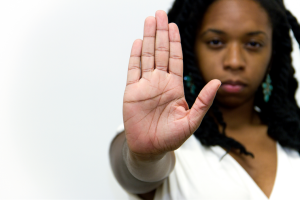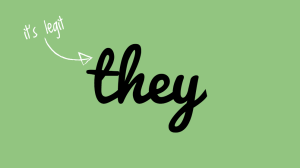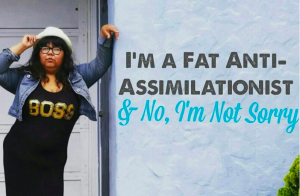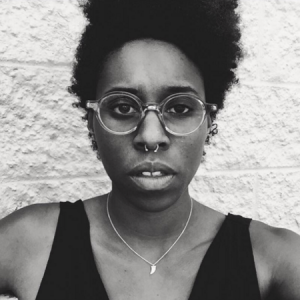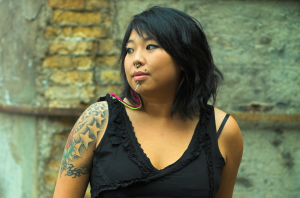Since migrating to the US as a child, The American Dream was a real goal for me.
As I grew up, I adopted the idea that attaining The Dream meant ramping up checklist points on the things ambitious, responsible, adult women “must” do: looming deadlines and authority issues at work, separation anxiety and questionable practices at my daughters’ daycare, volunteer commitments that clashed with gymnastics and soccer practices, commiseration about work stuff with my husband.
That, in summary, was the design of my life. And I held onto it until it became emotionally unsustainable.
Thankfully, that life and that feeling are now part of my past.
My radical shift from cranky corporate employee and overscheduled PTA mom to happy, unschooling, digital nomad was no series of serendipitous events. Surely, some luck was involved. But there was also plenty of strategic decision-making and straight up leaps of faith. If you’re ready to tackle the task of designing a better life, one thing you can do is start saying yes to your needs, and no to the needs of others.
Start by giving yourself permission to say no more often – to people, to commitments, and to things you’re doing out guilt, and not desire.
I know this is high on the “easier said than done” list. I also know that there are so many reasons why yes feels easier and safer than no.
But here four reasons you might be saying yes when you really mean no, and how to support yourself in making a different choice.
1. Saying ‘No’ Makes You Feel Guilty and Selfish
Maybe you, like many people, feel guilty about saying no, especially if it’s to someone you really want to help – or you might feel like saying no is the wrong move because it cuts you out of a potential opportunity.
Yes feels easier at first, but it can come at a greater emotional cost that you should have to pay.
Here are some good reasons for saying no more often:
- Saying no means saying yes to your right to assert your personal boundaries
- Saying no is a great way to stave off those who manipulate people who have trouble saying no
- Saying no means saying yes to relationships built on honesty instead of guilt or fear
- Saying no means saying yes to self-governance and authentic self-expression because you are practicing the skills of time management and truthful expression of your own needs and preferences
If you’re overdue for some solid no work in your life, start by practicing the Unapologetic No.
That is, most of us add I’m sorry to the beginning or end of our no. But why would we need to apologize? The truth is that apologizing won’t change your no, and it probably won’t help the person you’re saying no to.
It might feel like our apology helps somehow protect their feelings (or maybe ours), but it’s still a misplaced apology, and it can make us feel bad for choosing ourselves over the person whose asking for our help.
Practice letting your no stand without misplaced apologies. Try on some of these alternatives that may better articulate what you actually mean:
- “I wish I had time to commit to that, but I don’t.”
- “I’m definitely not the right person to help you with this one.”
- “I can’t fit that into my day because I’ve got too much going on.”
- “If I say yes, I’d be saying it out of guilt, because the truth is that I’m not in a position to help you with this.”
You can also suggest an alternative way of helping that works better for you.
If you don’t want to help your friend move, for example, but you’re available and willing to help them unpack, then say that. Or if you’d gladly buy them dinner the night they move, offer that. Remember that someone’s request for help doesn’t always have to be based on their timetable or their specific need. You can suggest ways of involvement that make sense for you.
2. You’re Used to Saying ‘Yes,’ Even Though It’s More Beneficial to Those You’re Saying It to Than to You
Sometimes the threat of a consequence is more powerful than our own internal compass. We do things we’d rather not do – often out of habit, tendency, or training.
For example, it took me three years to finally stop accepting speaking requests that didn’t pay. I knew that I had more than enough experience to substantiate my speaker fees, and I knew my rates were flexible. Yet still, I was used to saying yes, and I was afraid of how I would come across, and what other opportunities I might miss, if I started saying no.
But when I started calculating the cost of my insincere or fear-focused yes, I realized that I couldn’t afford those yes costs.
Here are some examples of what saying yes might be costing you:
- Saying yes to projects with no budget for your services means saying no to well-paying clients
- Saying yes to extra projects at work means saying no to time with yourself or your family
- Saying yes to helping a friend on the weekend means saying no to your vital recuperative time
- Saying yes out of fear of disappointing someone else means saying no to prioritizing your own feelings
- Saying yes to protect someone’s feelings means saying no to honest communication
- Saying yes to things that inconvenience you means saying no to your internal protective mechanism
- Saying yes out of fear of missing a good opportunity means saying no to the good opportunity that’s waiting for you to recognize it
And yourself before you say yes to consider what you’re saying no to, what you could be saying yes to instead – and go and make those things happen.
3. You’ve Started Saying ‘No,’ But You Still Harbor Feelings of Fear and Guilt About the Impact of Your Choice
Hear me out on this one.
I’m not saying that you need to leave people hanging and ditch your present commitments in order to live a more fulfilled life.
But what choices do we have when we feel compelled to stop something we’ve started, either because we no longer want it, or we no longer feel connected or committed to what it takes to get it?
No major shift can happen if we’re unwilling to let go of some of our current practices. I had to let go of a lot of what I had in order to make room for what I said I wanted.
And for me, saying no meant quitting things that once meant the world to me, including:
- Walking away from our then-dream home
- Giving away one vehicle and selling the other
- Leaving the structure and “safety” of traditionally educating my children in school for school-free, location independent living
- Ending a longtime friendship that descended into toxicity
- Severing ties with clients and communities that took far more than they gave
- Committing to the release of projects that brought in good money, but bad vibes –or no money, but plenty of potential
I needed to take a full-frontal approach to the design of the life I desired. I couldn’t start by just dabbling in an idea or testing out a possibility.
And while maybe you’re not in a place to start quitting everything that doesn’t serve you left and right, there is one small, but powerful step that you can take to start nurturing a life that feels good to you.
My recommendation if you are feeling and sick and stifled, maxed out and muted by what you’re doing with your days, is to name your emotions.
Sometimes all our fears need is an eye-to-eye stare down. When we’re not clear about how we feel, we become susceptible to all the options, including ones that might just be momentary – but we grab them and hold them as if they’re the only emotional option in that space. I recommend writing down the feelings associated with your decision to quit something.
Questions might include:
- Will I feel like a failure?
- What if x gets upset? Or disappointed?
- What if I come across irresponsible or unprofessional for quitting?
- What if x can’t find someone to help them the way I did/do?
- How will this change my relationships with x?
- What can I do to be okay with how it feels to say no?
Essentially, managing feelings of guilt, fear, and any other undesirable emotions is part of the process.
The goal is not to avoid those feelings, but to name them, to question them, and to put them up against your own personal goals.
If what you’re saying yes to is costing you emotional strain, eating up your time, and conflicting with how you want to feel, then you have the right to say no.
The Journey Toward the Life You Crave
Life design isn’t easy, but it’s unavoidable if you intend to reclaim your life, your time, and your joy.
Sometimes, the specific fear that comes with designing a better life is that your personal and professional relationships will suffer. And yes, the realities of change can include friendships that end and relationships that become different because you become different.
But don’t blame yourself when the losses and shifts happen.
Try to observe without deciding what should be, and try to make choices that prioritize you without needing other people to be okay with it. This means not needing to explain yourself to anyone, and standing in your choice instead of vacillating or beating yourself up for what might happen.
And perhaps most importantly, this means celebrating that moment when you start to see that you can in fact be productive and fulfilled, busy but not overwhelmed, ambitious and helpful, but rarely, if ever, at the cost of your own joy.
[do_widget id=”text-101″]
Akilah S. Richards is a Contributing Writer for Everyday Feminism. She is a six-time author, digital content writer, and lifestyle coach who writes passionately about self-expression, womanhood, modern feminism, location independence and the unschooling lifestyle. Connect with Akilah on Instagram, Tumblr, or her #radicalselfie e-home, radicalselfie.com. Read her articles.
Search our 3000+ articles!
Read our articles about:
Our online racial justice training
Used by hundreds of universities, non-profits, and businesses.
Click to learn more
Most Read Articles
- « Previous
- 1
- …
- 30
- 31
- 32


